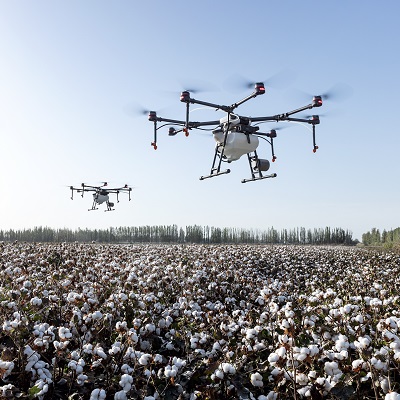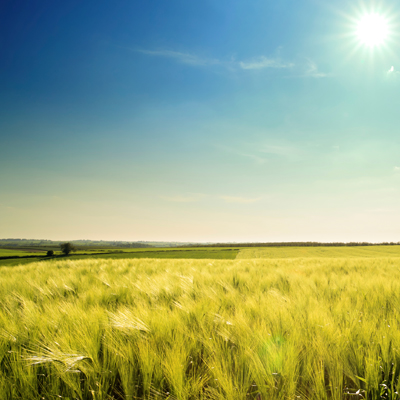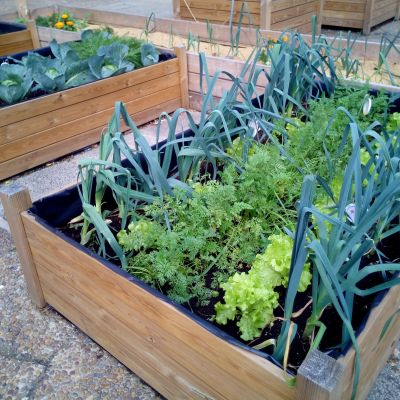Contact Dr Daniel Evans
- Email: Daniel.L.Evans@cranfield.ac.uk
- Twitter: @DanEvansol
- ORCID
- Google Scholar
- ResearchGate
Areas of expertise
- Soil
- Sustainable Land Systems
Background
Dan is a Senior Lecturer in Soil Formation, and a UKRI Future Leaders Fellow at Cranfield University. He leads both fundamental and applied research on soil formation and the parent materials from which soil is formed. His work focuses on the interactions between parent materials and soils, how soil parent materials support soil ecosystem services, and the natural and anthropogenic threats to the parent material zone. His Future Leaders Fellowship explores the storage, transport, and stability of organic carbon in soil parent materials to support new strategies for carbon sequestration and long-term carbon storage.
Dan's passion for soils research germinated in 2012 when he studied mobile debris lobes in Alaska during a Royal Geographical Society Scholarship. Following his return, he obtained a first-class degree in Physical Geography at the Royal Holloway, with prize-winning research on root architecture and soil erodibility. During his PhD at Lancaster University, he conducted the first isotopic measurements of UK arable soil formation, and the first globally-relevant estimates of soil lifespans. His contributions internationally were recognized with the EGU's 2024 Arne Richter Award for Outstanding Early Career Science.
Dan is the Outgoing Early Career Scientist representative for the European Geoscience Union, representing >20,000 Early Career Scientists from more than 20 geoscience disciplines across the Union. Previously, he was former ECS Representative for the Union's Soil System Science Division and the National ECS Officer for the British Society of Soil Science (BSSS). In 2019, he co-hosted HRH The Duke of Gloucester at the BSSS ECR conference and later was awarded the Society's inaugural 'Outstanding Contribution to Soil Science' prize. He's an Associate Editor for the European Journal of Soil Science, the Chair of the journal's first ECR Editorial Board, and was the Lead Editor for the journal's 75th Anniversary Special Issue. In addition, Dan is the Executive Co-Chair of the Greenhouse Gas Removal Future Leaders Network (GGR-FLN), an evolving network bringing together early career professionals working on GGR across the UK.
Dan's also passionate about science communication. He was the inaugural speaker at the first Royal Holloway TEDx conference and has given public lectures at the Royal Geographical Society, the UK Climate Emergency network, and the Science Futures stage at Glastonbury Festival. In 2024, Dan launched the world’s first Talking Soil Bench: a purpose-built bench with a speaker system that plays audio about soils, including ecoacoustics recordings of the life within a soil. His research has featured across international media outlets including The Conversation, Our World in Data, the US Agribusiness Report, BBC Radio 4's Farming Today, Sky News, and Farmer's Weekly. He has been an invited contributor in public-facing news and feature articles (e.g. BBC Future Planet), as well as industry magazines (e.g. ProLandscaper).
Dan is Course Director for the UK's first Level 7 Soil Scientist Apprenticeship and MSc in Soil Science. Co-designed with UK industry, this programme equips organisations and professionals with the knowledge, skills, and tools needed for optimal soil management.
Research opportunities
I hold a UKRI Future Leaders Fellowship, which explores the hidden “basement” beneath soils - the Soil Parent Material - to reveal how deep layers store and release carbon, improving climate models and supporting Net Zero goals.
Imagine trying to fit everything you own into a single-room house. For years, scientists have tried to squeeze more carbon into soils. Soils are one of the planet’s most important natural tools for tackling climate change, storing vast amounts of carbon and helping to keep it out of the atmosphere. But some soils are thinning, and that “room” for carbon storage is shrinking.
Now imagine discovering a hidden basement under that single-room house: a vast new storage space waiting to be used. That’s where my research comes in. Between the soil and the bedrock lies a little-known zone called the Soil Parent Material (SPM) – the layers of weathered rock and sediment from which soils form.
Emerging research shows that SPMs hold a notable share of the carbon stored belowground. Yet we still know little about how much carbon they contain, how it gets there, how stable it is, or how much more they could store. Some SPMs even contain ancient, rock-derived petrogenic organic carbon (OCpetro) formed millions of years ago. As these rocks weather, this old carbon can be released into the soil and atmosphere, influencing Earth’s carbon balance in ways not yet fully understood.
My Future Leaders Fellowship is exploring the roles that SPMs play in climate regulation. The research will measure how much carbon SPMs store, explore how microbes and plant roots move and stabilise carbon within them, and identify when and where OCpetro is released.
This work will improve carbon models and help develop new ways to lock away carbon for the long term. Understanding what lies beneath our soils could unlock a major new opportunity for reaching Net Zero, and transform how we think about the ground beneath our feet.
Publications
Articles In Journals
- Evans DL. (2025). Organic carbon stocks in weathered bedrock—Establishing the soil parent material as a new horizon in soil carbon research. Vadose Zone Journal, 24(2)
- Evans DL, Doetterl S, Gallarotti N, Georgiadis E, Nabhan S, .... (2025). The known unknowns of petrogenic organic carbon in soils. AGU Advances, 6(2)
- Chaibva P, McCloskey CS, Sizmur T, Greenfield LM, Ahmed S, .... (2025). Uncovering plant root traits and mechanisms that enable penetration, exploration, and exploitation of soil parent materials: a systematic review. Plant and Soil, ahead-of-print(ahead-of-print)
- Pawlett M, Girkin NT, Deeks LK, Evans DL, Sakrabani R, .... (2024). The contribution of natural burials to soil ecosystem services: review and emergent research questions. Applied Soil Ecology, 194
- Panagos P, Vieira D, Eekhout JPC, Biddoccu M, Cerda A, .... (2024). How the EU Soil Observatory contributes to a stronger soil erosion community. Environmental Research, 248
- Dungait JAJ, Evans DL, Farrell M, He H, Heuvelink GBM, .... (2024). Going Platinum: The European Journal of Soil Science at 75. European Journal of Soil Science, 75(2)
- Evans DL, Cândido B, Coelho RM, De Maria IC, de Moraes JFL, .... (2024). The loss of soil parent material: detecting and measuring the erosion of saprolite. Soil Systems, 8(2)
- Batista PVG, Evans DL, Cândido BM & Fiener P. (2023). Does soil thinning change soil erodibility? An exploration of long-term erosion feedback systems. Soil, 9(1)
- Vis BN, Evans DL & Graham E. (2023). Engagement with urban soils part I: applying Maya soil connectivity practices to intergenerational planning for urban sustainability. Land, 12(4)
- Vis BN, Evans DL & Graham E. (2023). Engagement with urban soils part II: starting points for sustainable urban planning guidelines derived from Maya soil connectivity. Land, 12(4)
- Wang F & et al., . (2023). Climate change: strategies for mitigation and adaptation. The Innovation Geoscience, 1(1)
- Graham E, Evans DL, Macphail R, Stegemann J & Glanville-Wallis F. (2023). An archaeological foundation to soil sustainability. Journal of Contemporary Archaeology, 10(1)
- Walsh LE, Mead BR, Hardman CA, Evans DL, Liu L, .... (2022). Potential of urban green spaces for supporting horticultural production: a national scale analysis. Environmental Research Letters, 17(1)
- Evans DL, Falagán N, Hardman CA, Kourmpetli S, Liu L, .... (2022). Ecosystem service delivery by urban agriculture and green infrastructure – a systematic review. Ecosystem Services, 54(April)
- Tye AM, Evans DL, Lee JR & Robinson DA. (2022). The role of post UK-LGM erosion processes in the long-term storage of buried organic C across Great Britain – a ‘first order' assessment. Earth-Science Reviews, 232(September)
- Evans D. (2022). 'Only One Earth' – Celebrating soil science on World Environment Day 2022. European Journal of Soil Science, 73(4)
- Harris JA, Evans DL & Mooney SJ. (2022). A new theory for soil health. European Journal of Soil Science, 73(4)
- Harris JA, Evans DL & Mooney SJ. (2022). A response to Bouma ‘feeding existing expertise into a possibly “new” theory for soil health?’. European Journal of Soil Science, 73(6)
- Payen FT, Evans DL, Falagán N, Hardman CA, Kourmpetli S, .... (2022). How much food can we grow in urban areas? Food production and crop yields of urban agriculture: a meta-analysis. Earth's Future, 10(8)
- Evans DL, Quinton JN, Tye AM, Rodés Á, Rushton JC, .... (2021). How the composition of sandstone matrices affects rates of soil formation. Geoderma, 401(November)
- Evans DL, Janes-Bassett V, Borrelli P, Chenu C, Ferreira CSS, .... (2021). Sustainable futures over the next decade are rooted in soil science. European Journal of Soil Science, 73(1)
- Cimpoiasu MO, Dowdeswell-Downey E, Evans DL, McCloskey CS, Rose LS, .... (2021). Contributions and future priorities for soil science: comparing perspectives from scientists and stakeholders. European Journal of Soil Science, 72(6)
- Haygarth PM, Lawrenson O, Mezeli M, Sayer EJ, McCloskey CS, .... (2021). On pedagogy of a Soil Science Centre for Doctoral Training. European Journal of Soil Science, 72(6)
- Evans DL, Vis BN, Dunning NP, Graham E & Isendahl C. (2021). Buried solutions: How Maya urban life substantiates soil connectivity. Geoderma, 387
- Evans D, Rodés Á & Tye A. (2021). The sensitivity of cosmogenic radionuclide analysis to soil bulk density: Implications for soil formation rates. European Journal of Soil Science, 72(1)
- Portell X, Sauzet O, Balseiro-Romero M, Benard P, Cardinael R, .... (2020). Bypass and hyperbole in soil science: a perspective from the next generation of soil scientists. European Journal of Soil Science, 72(1)
- Evans DL, Quinton JN, Davies JAC, Zhao J & Govers G. (2020). Soil lifespans and how they can be extended by land use and management change. Environmental Research Letters, 15(9)
- Rodés Á & Evans DL. (2020). Cosmogenic soil production rate calculator. MethodsX, 7
- Evans DL, Quinton JN, Tye AM, Rodés Á, Davies JAC, .... (2019). Arable soil formation and erosion: a hillslope-based cosmogenic nuclide study in the United Kingdom. SOIL, 5(2)
- Barthel S, Isendahl C, Vis BN, Drescher A, Evans DL, .... (2019). Global urbanization and food production in direct competition for land: Leverage places to mitigate impacts on SDG2 and on the Earth System. The Anthropocene Review, 6(1-2)
- Orton A, Boothe D, Evans D, Lloyd S, Monroe MM, .... (2018). Esthesioneuroblastoma: A Patterns-of-Care and Outcomes Analysis of the National Cancer Database. Neurosurgery, 83(5)
- Evans D, Yalkowsky S, Wu S, Pereira D & Fernandes P. (2018). Overcoming the Challenges of Low Drug Solubility in the Intravenous Formulation of Solithromycin. Journal of Pharmaceutical Sciences, 107(1)
- Loo D, Evans D, Abbott CC & Quinn DK. (2017). Left Anterior-Right Temporal Electroconvulsive Therapy for Catatonia After Epilepsy Surgery. The Journal of ECT, 33(1)
Conference Papers
- Batista P, Evans DL, Cândido B & Fiener P. (2022). Feedbacks between water erosion and soil thinning
- Mezeli M, Evans DL, Jones DL, Lawrenson O & Haygarth P. (2021). Soils training and research: Who's legacy?
- Evans D & Cox R. (2018). Channel Modeling for Powerline Communications in Series-Connected PV Inverters
- Evans D & Cox R. (2017). Powerline communications strategy enabling fully decentralized control of AC-stacked PV inverters
- Abel L, Wafula RN, Evans D, Taylor SM, O'Meara WP, .... (2017). IMPLICATIONS OF REDUCED SUSCEPTIBILITY TO INSECTICIDES IN MALARIA VECTORS IN AN AREA WITH HIGH ITN COVERAGE
- Evans D, Ravindra V, Ronna B, Rubiano A & Hawryluk G. (2017). VALIDATION OF A NEW APPROACH TO READING POST-TRAUMATIC CRANIAL IMAGING
- Henschen BL, Ryan ER, Evans D, Truong A, Wayne D, .... (2017). TREATING THE PATIENT, NOT THE PROBLEM: DIVERSITY IN PERCEPTIONS OF PATIENT CENTERED CARE AMONG EARLY M1 MEDICAL STUDENTS
- Papadimitriou KI, Evans D, Morgan H & Prodromakis T. (2016). A PCB-based electronic ELISA system for rapid, portable infectious disease diagnosis








